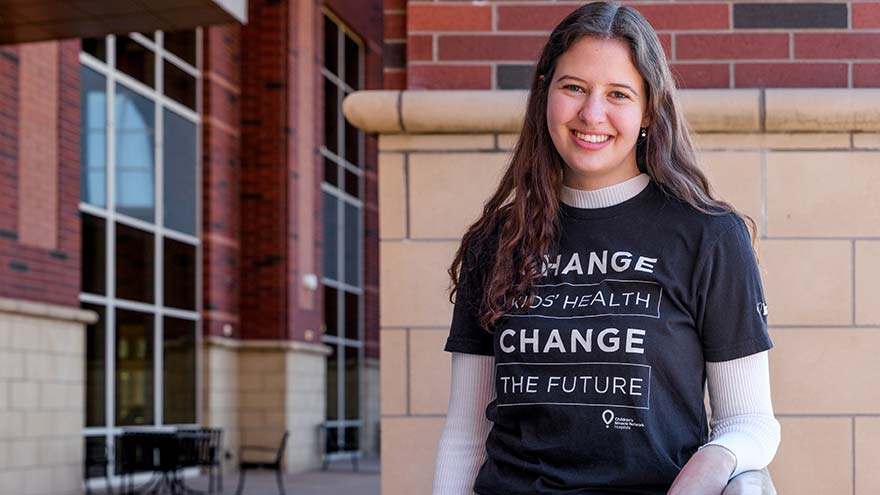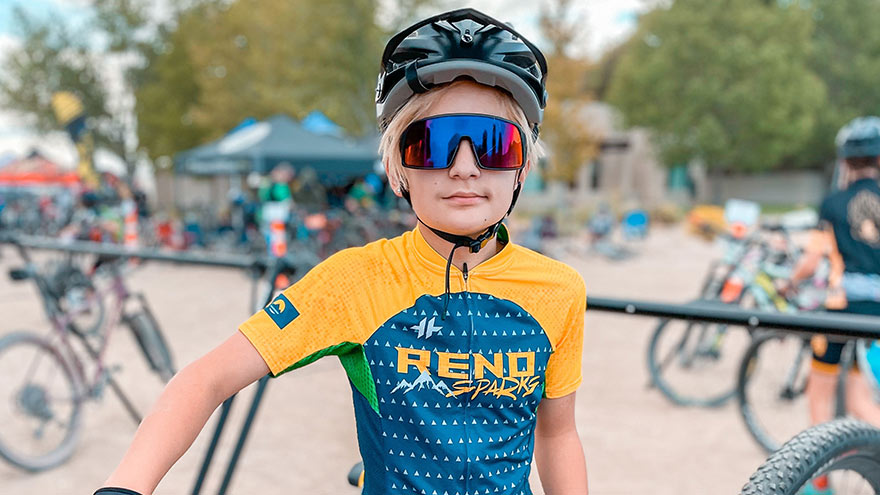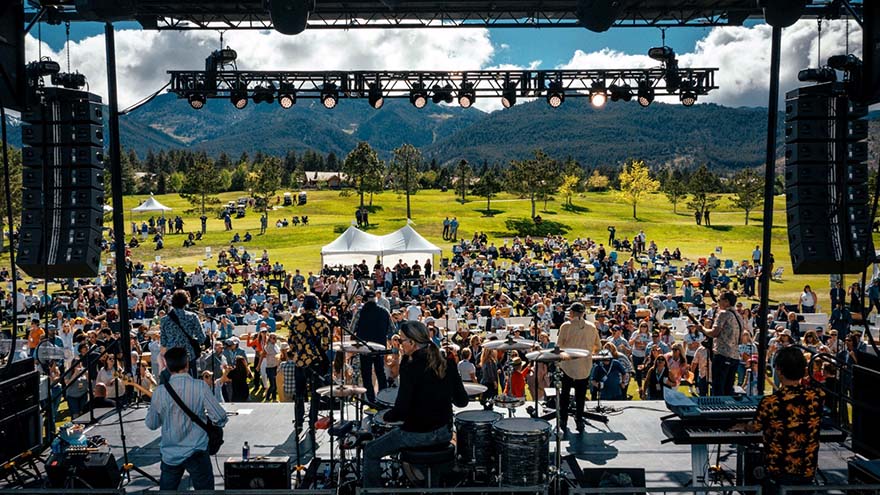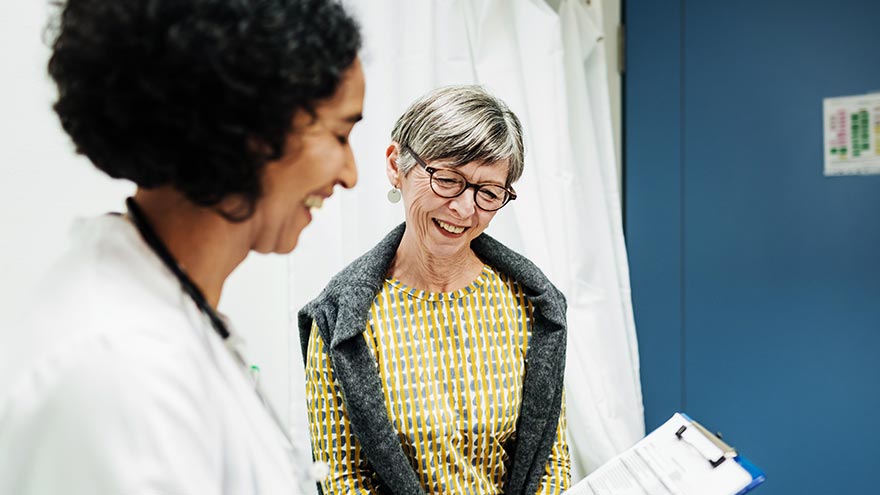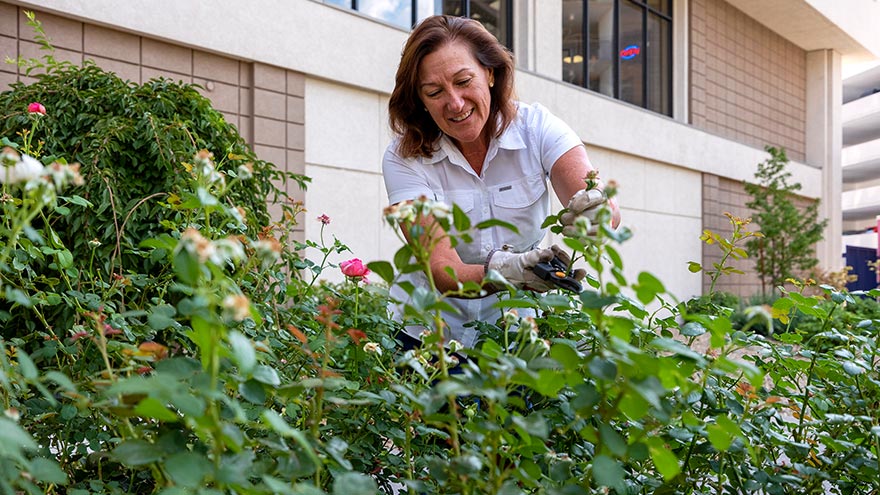Search
-
The Not-So-Fab-Five: Foods That Increase Stroke and Heart Disease Risk
Did you know that 80 percent of all strokes are preventable? Learn which foods should be eaten in moderation to reduce your family's risk of stroke. Stroke is the fifth leading cause of death in the nation and a major cause for disability, killing 130,000 people each year. But did you know that 80 percent of all strokes are preventable, according to the American Stroke Association? Several stroke risk factors -- high blood pressure, smoking, diabetes, physical activity level, obesity, high cholesterol and heart and artery disease -- can be controlled, treated and improved, right down to the foods we choose to consume each day. Diets high in sodium can increase blood pressure, putting you at greater risk for stroke. A high-calorie diet can lead to obesity -- another risk factor. And foods high in saturated fats, trans fat and cholesterol will raise your blood cholesterol levels causing blood clots, which -- you guessed it -- can lead to a stroke. The “not-so-fab” five foods listed below play a large role in damaging your body and causing vascular disease, stroke and heart disease and should be avoided on a regular basis. However: Moderation is the key to life, in my opinion. Sure, everyone is going to have a soda here and there or a steak off the grill, but keep it off the main menu. 1. Packaged and Fried Food Have you noticed foods like hot dog buns and bottled salad dressings rarely go bad? Ever asked yourself why? This is due to the use of hydrogenated oils, which are trans fats. Hydrogenated oils stay solid at room temperature and do not require refrigeration. Convenient? Yes. Healthy? No. Unfortunately, many frozen foods and meals also fall into this category, except for frozen fruits and veggies. So here’s the lowdown on trans fats: They’re considered by many experts as the worst type of fat you can consume, raising your LDL (“bad”) cholesterol and lowering your HDL (“good”) cholesterol. While some meat and dairy products contain small amounts of naturally occurring trans fat, most dietary sources are formed through an industrial process adding hydrogen to vegetable oil, causing the oil to solidify at room temperature. The FDA is in the process of restricting or possibly banning trans-fats from food in the U.S. A study published in JAMA Cardiology compared data from counties with and without trans-fat restrictions and the findings were substantial: There was a 6 percent decline in hospitalizations for heart attack and stroke in counties with trans-fat restrictions. Bottom line: Ideally no processed food should pass your lips, but realistically, aim for less than 2 grams of trans fat per day. Skip the store-bought treats at the office and fries at lunch. Also avoid crackers, regardless of what you are dipping them in. Choose to eat fruits to satisfy your sweet cravings and veggies and hummus to satisfy the savory. 2. Lunch meat Processed meats, including bacon, smoked meats and hot dogs, are all on the DNE (Do Not Eat) list, unless you want to play with fire. Processed meats are a no-go if you want to keep your arteries clear of plaque buildup. So what is the alternative to your salami sandwich? Try a healthy alternative like a tuna sandwich with avocado (a great alternative to mayo) or a veggie sandwich. 3. Diet soft drinks First of all, when a drink is sweeter than a candy bar but it contains zero sugar and zero calories, buyer beware. Many consumers think because a soda is labeled “diet” it’s a better choice, but studies have linked diet soft drink consumption with an increased risk of stroke and vascular disease. In a nine-year study of more than 2,500 people, those who drank diet soda daily were 48 percent more likely to have a heart attack or stroke or die from those events, compared with those who rarely or never drank soda. What else are you supposed to drink? If you must drink soda, break the everyday habit and drink it on special occasions; otherwise water rules. And if you don’t like water, try flavoring your water with fruit slices. 4. Good-old red meat So is there ANY good meat out there you ask? The answer is yes, but it’s not red. In the journal Stroke, an article showed women who consumed large servings of red meat regularly had a 42 percent higher incidence of stroke. Red meat is high in saturated fat, which clogs arteries with plaque. The alternative to red meat is a heart-healthy protein like poultry or fish, or even non-animal products like beans, nuts and tofu. 5. Canned foods Steer clear of factory processed soups, beans and sauces. Canned items all have incredible amounts of sodium or MSG or baking soda/powder to maintain their freshness and shelf life. One study showed if you consume more than 4,000 mg of salt per day, you more than double the risk of stroke compared to diets with less than 2,000 mg. Another tip: When possible, plan and make meals from scratch. Making the wrong meal or snack choices is one of the biggest contributing risk factors for stroke and heart disease. Most people know what good food choices are, but they don’t realize the serious impact the bad choices have on overall health. Learn what is most beneficial to your body to consume. It will be a life changer – literally.
Read More About The Not-So-Fab-Five: Foods That Increase Stroke and Heart Disease Risk
-
Why I Give: Sarah’s Story
As an avid soccer player, Sarah saw her fair share of doctors growing up. However, it wasn’t until she was diagnosed with celiac disease, an autoimmune disease affecting how the body ingests gluten, that she became passionate about healthcare. “I couldn’t figure out what was going on,” Sarah said. “I was getting sick, and my symptoms were getting worse.” Thankfully, after seeing a handful of doctors, she was on the path to recovery. “I remember being so relieved, and still am! Now I can focus on getting better,” said Sarah. The most important change people make after being diagnosed with celiac disease is the shift to a gluten-free diet. For many, Sarah included, living gluten-free is a lifestyle change. Thankfully, Sarah sees significant improvements in her health after adjusting her diet. “No one should just accept their symptoms as part of life,” said Sarah. Her increased awareness of health and nutrition motivated Sarah to study biology at the University of Nevada, Reno (UNR). “I want to be a pediatrician so I can help patients, especially kids, figure out treatment plans.” said Sarah who credits her experience living with celiac disease as her inspiration. Dancing for Kids’ Health Currently a senior at UNR, Sarah is a member of Phi Delta Epsilon, a co-ed international medical fraternity. Together with her classmates, she is bringing new energy and ideas to philanthropy. Sarah and the members of Phi Delta Epsilon are doing things differently and in many ways redefining what it means to give. This year, they are on a mission to raise funds for kids’ health at Renown Children’s Hospital. And they are doing this by dancing. The UNR Dance Marathon is part of the Miracle Network Dance Marathon, a student-led, year-round philanthropic movement that unites students across the United States and Canada. Collectively, they raise critical funds for Children's Miracle Network Hospitals. And Renown Children’s Hospital is our northern Nevada CMN partner hospital. Since 1991, over 400 college campuses and thousands of students have raised $300 million for kids. Sarah is the executive director of UNR’s chapter. “So far this year we’ve already raised $10,000 for Renown," said Sarah. Most of the fundraising happens on the day of the dance marathon. But throughout the school year, students hold mini fundraisers on campus and in the community. One hundred percent of the funds raised stay local, impacting Renown’s youngest patients. For every dollar donated, 18% helps provide charitable care, 15% goes to life-saving equipment, 12% supports medical research and 55% provides education, patient services and advancement services. “It's inspiring that we banded together to help kids in our community,” said Sarah. Last year they raised over $18,000. They are hoping to exceed that number at this year’s dance marathon in April.
-
Jakob’s Journey at Renown Children’s Hospital
In August 2016, six-year-old Jakob was admitted to Renown Children's Hospital with what seemed like a common ear infection. Jakob's condition quickly progressed, and he started experiencing neurological symptoms such as difficulty speaking and a full-body shutdown. Doctors, neurologists and specialists from Renown worked with doctors from Stanford, where he was ultimately diagnosed with Bickerstaff brainstem encephalitis (BBE). BBE is a rare, autoimmune response that attacks the nerves in the body due to an acute illness such as a cold, flu or, in Jakob's case, an ear infection. Jakob could not breathe or eat and experienced paralysis on the side of his face, throat, stomach, bowels, lungs and legs. In addition, he started to rapidly lose weight as well as body function. Jakob lost half his body weight which resulted in the need for a Gastrostomy tube. This device is placed surgically and gives direct access to the stomach to give the child the nutrition needed. He also needed occupational therapy, and after three and a half months of ICU respiratory therapy, surgeries and treatments, he was released home to regain his strength. Forever Grateful Anica, Jakob's mom, said, "If it were not for the quick response and unconditional support and compassion from the team at Renown, Jakob would not be here today." Jakob's family is forever grateful to the staff, community and expertise at Renown for their unwavering commitment to their son and family during their most trying time in life. "When I met Jakob on the first day of his illness, so much was unknown. My team and I were worried, as his symptoms were very unusual. His rapid deterioration, after being a perfectly healthy child, was clearly terrifying for his parents. Handing over a child's care to a team of strangers is one of the scariest things that can happen to parents,” said Dr. Kris Deeter, Physician in Chief at Renown Children’s Hospital. “However, Anica and Jeremiah were also very clear that they did not want Jakob transferred somewhere else. So, we used all our resources to care for him, arrive at a diagnosis, and start aggressive therapies. They listened to every word we said, educated themselves, and became partners in Jakob's care. We all became part of Team Jakob, and soon, he proved to us just how strong he was." Today, Jakob is 13 years old and thriving in every aspect of his life. He is currently on the honor roll in school and finds joy in his newfound passion for the violin. He loves spending his free time learning about mixing music, making new friends and traveling to different parts of the country. This summer, he will travel to Europe to explore his passion for culture. The family says, "We owe it all to the family and staff at Renown."
Read More About Jakob’s Journey at Renown Children’s Hospital
-
The Health Benefits of Snowshoeing
Snowshoeing can burn more calories than walking and makes it easy to maintain a six-foot physical distance during the pandemic. For those looking for a fun, low-impact workout, and this popular and affordable winter sport could be just right for you and your family. Though it may not have the adrenaline rush of snowboarding or skiing, snowshoeing provides significant health benefits such as: Exceptional cardiovascular workout – burn up to 1,000 calories per hour! Low-impact muscle building Endurance building Balance strengthening and agility Improves your sense of well-being by connecting to nature Prepping for Your Snowshoeing Adventure There are some crucial details to think about when it comes to snowshoeing, especially if you are a beginner. Make sure to pick the right kind of footwear to go on top of your snowshoes; a pair of comfortable waterproof boots are a great choice and remember to wear lots of layers. Several local places rent snowshoes if you aren’t sure about spending money on a pair. Check out Bobos Ski and Board Patio or our local REI Co-Op. Check out REI’s Beginner’s Guide to Snowshoeing and also How to Put on Snowshoes for reference. Local Snowshoeing Hot Spots Here are our top snowshoeing picks in the Lake Tahoe area, with plenty more to find if you point your search engine in the right direction. Galena Creek Park Close to Reno, this beautiful, low-altitude park offers several trails. You’ll find various creeks and streams under cover of pristine ponderosa pines. From beginner to advanced, the differing trail systems provide a challenge for everyone! Head west on State Route 431 (Mt. Rose Highway) for about seven miles until you see the park sign on the right side of the highway. Tahoe Meadows – Chickadee Ridge This local favorite not only gives fantastic views of Lake Tahoe but the best part? – friendly little chickadees will eat seeds right out of your hand! Be sure to pack plenty of sunflower birdseed, as that seems to be their favorite. From the trailhead parking lot, head southeast into the open meadow. Then follow the ridgeline to your right (southwest). Continue southwest up toward the top of the ridgeline to the west, and you’ll get to Chickadee Ridge in just under two miles. Spooner Lake Trail The easy 2.5-mile loop around Spooner Lake is excellent for all skill levels. This alpine lake is surrounded by aspen trees which house varied bird species, so bring your binoculars! Dogs are allowed on a leash, and all-day parking is $10. Kirkwood Ski Resort You’ll need a trail pass, but this South Lake Tahoe resort has various routes from beginner to advanced, with roughly 50 miles of terrain. Nighttime snowshoe treks during the full moon are also available throughout the winter. Kirkwood is located on Highway 88, close to Carson Pass. Camp Richardson Heading north, you can find this well-established and favorite local snowshoeing spot. If you’re up for an adventure, you can trek up to Fallen Leaf Lake. It’s located off Highway 89 and near Fallen Leaf Road. Dry Pond Loop This moderate, 6.5-mile loop near Washoe Valley has impressive views of Carson Valley, Washoe Lake, and the Mt. Rose Wilderness. If you like the sound of rushing water, most of the trail meanders along White’s Creek. This area is dog-friendly and kid-friendly, which makes it a family favorite. Royal Gorge Soda Springs is home to this resort, which is well known for its cross-country skiing trails. Enjoy extensive trails leading deep into the trees with spectacular views. Find Royal Gorge from the Soda Springs exit on West Interstate 80. Ash Canyon Creek Tucked away in the Carson Valley, these trails are filled with mountain bikes in the spring and provide excellent snowshoeing trails in the winter. Find it from Interstate 580 by taking the Highway 395 Business exit to Winnie Lane.
-
Emergency Care During a Pandemic
Medical emergencies like strokes and heart attacks still happen, even in a pandemic. That’s why Renown Health is always ready to provide emergency care to patients in need, and being admitted at Renown does not put patients at risk of getting COVID-19. When to Get Emergency Care Resources like Renown Virtual Visits have allowed us to stay home while making routine visits with our primary care physician. But, if you are feeling any of the following symptoms, please call 911 or have someone you know take you to the emergency room. Symptoms that may require emergency care: Heart attack Stroke symptoms Difficulty breathing Chest pain Seizure Sudden loss of consciousness Severe abdominal pain Serious allergic reaction Fighting the Good Fight for Our Patients Renown Health provides a clean and safe environment 365 days of the year, 24 hours a day. Alongside regular sanitation practices, Renown is dedicated to protecting patients from infectious disease while providing emergency care. Staff, Care Providers and Visitors Wear Masks Every staff member, care provider and visitor is wearing a mask. Additionally, providers are following guidelines from the Centers for Disease Control (CDC) on wearing protective equipment, such as masks and gloves. Respiratory Illness Screenings for Everyone Care providers and staff members are participating in respiratory illness screenings. Therefore, any care provider or staff member with a fever, cough, difficulty breathing or severe respiratory illness is not on a Renown campus. Visitor Restrictions are in Place Visitor restrictions are in place to prevent the spread of infectious disease by practicing physical distance. Because of these restrictions, Renown is only allowing one visitor per patient for with extenuating circumstances. Staying healthy and safe means caring for yourself in emergency situations, too. Please do not hesitate to call 911 when you or a loved one are in need of emergency medical care. Virtually Visit a Renown Urgent Care Login to MyChart to “get in line” for a virtual urgent care visit between 8:30 a.m. to 10:30 p.m. Monday-Friday and 9:30 a.m. to 4:30 p.m. Saturday and Sunday. Login to MyChart
-
Renown Health Food Pantry Nourishes Patients in Need
Unfortunately, many in our community go to bed hungry. Thanks to the support of the Food Bank of Northern Nevada and other local partners, Renown’s food pantry is helping meet the food needs of homeless and low-income individuals in our community. Patients who qualify for the “Food is Medicine Prescription” can receive a bag of food for themselves and each member of their immediate family every week through a free assistance program. This project started last year when Renown began giving food support to hospital and emergency room patients who expressed the need. Food is also given out at the Healthcare Center, which provides affordable access to care for anyone in our community. Those who receive care at the Healthcare Center are also eligible for food assistance. Working Alongside the Community After receiving food deliveries from the Food Bank of Northern Nevada, Renown’s community health team collects an assortment of fresh produce, donated from local grocery stores and other community organizations. Then they put together one bag for each family filled with healthy foods, such as: Whole grain cereals Shelf stable milk Kid-friendly snacks (granola bars, popcorn, graham crackers Proteins (low-salt soups, stews, peanut butter) Seasonal produce Food is Medicine Prescriptions Continue Amidst the Pandemic Throughout the COVID-19 (coronavirus) pandemic, Renown’s community health workers have been working remotely. They continue to reach out to patients who need groceries from the Food is Medicine Prescription program. With this in mind, the food pantry staff is currently coordinating outpatient deliveries to those with a Food is Medicine Prescription. At present, Renown is working to get more refrigeration, shelving and staffing to expand the service to more Renown Medical Group patients in need of food.
Read More About Renown Health Food Pantry Nourishes Patients in Need
-
Renown Health Foundation Shines Bright
Renown Health Foundation and local community members raised over $1,000,000 at a charity concert with The Beach Boys and special guest NFL legend Steve Young, on Sunday, June 5, at Montreux Golf and Country Club. The event benefits the construction of Sophie’s Place, a new dedicated music therapy room coming to Renown Children’s Hospital. Over 500 donors attended the inaugural event hosted by radio personality Wink Martindale. The Beach Boys front man Mike Love, a Nevada resident, generously auctioned off two once-in-a-lifetime, private concerts bringing in $300,000. Steve Young auctioned off a Monday Night Football package and ZLINE Kitchen and Bath auctioned off a kitchen remodel. The proceeds raised will be transformative for Sophie’s Place and will impact children in our community for years to come. “I’m thankful to Renown and other children’s hospitals that are dedicating space, precious space, for Sophie’s Place,” says Steve Young, founder of Forever Young Foundation and co-founder of Sophie’s Place. View photos from the event here. What is Sophie’s Place? Sophie’s Place is a dedicated music therapy room in children’s hospitals across the country. Founded by the Forever Young Foundation and former San Francisco 49'ers quarterback, Steve Young, they provide a comprehensive music and healing arts program. Established in loving memory of musician Sophie Barton, the first Sophie’s Place opened in 2013 at Primary Children’s Hospital in Salt Lake City, Utah. Additional locations include Sutter Children’s Center in Sacramento, CA., Cardon Children’s Medical Center in Mesa, AZ., Lucille Packard Children’s Hospital in Palo Alto, CA., and Brenner Children's Hospital in Winston-Salem, NC. Renown Children’s Hospital will be the next location to break ground and will provide our youngest patients with a state-of-the-art music room. It will be the first of its kind in our community. “Sophie’s Place is a wonderful addition to what a hospital has to offer,” says Dr. Max Coppes, Pediatrics Chair, UNRSOM. Where will Sophie’s Place be Located? Sophie’s Place at Renown Children’s Hospital will be located on the ground floor of the Sierra Tower, next to The John & Sue Dermody Children’s Healing Garden. The family-centered space is designed for children to enjoy the healing aspects of music and encourage creativity and expression during their stay. “We really wanted kids to feel like they’re not in the hospital. It’s a place where they can escape,” says Barb Young, Founder of Forever Young Foundation and Co-founder of Sophie’s Place. The room includes a performance space, recording studio, musical instruments, editing software and an art and play area. “When you walk into a Sophie’s Place, you really feel like you’ve left the hospital and walked into a cool coffee shop,” says Sterling Tanner, President, Executive Director, Forever Young Foundation. How You Can Help Make a Difference Renown Health is focused on being the destination for all your family’s health and healthcare needs. As a not-for-profit health system, Renown relies heavily on community funding. If you are interested in supporting Sophie’s Place at Renown Children’s Hospital, please consider giving to Renown Health Foundation. Make a gift at renown.org/give Call Renown Health Foundation at 775-982-5545 Mail a check to Renown Health Foundation, 1155 Mill St., 02, Reno, NV 89502
-
What Does It Mean to Participate in a Clinical Trial?
Participating in a clinical trial is voluntary and a personal choice. Clinical trials are research studies that involve people and are an important part of patient care. What is a clinical trial? Clinical trials are research studies that involve people, and they are an important part of patient care. There are several different types of clinical trials; some are designed to understand trends in a disease or identify better ways to diagnose a condition, while others determine if a new treatment is safe and works when treating, improving or preventing a health condition. There are over 400,000 clinical trials currently being conducted in the United States, and even more across the world. This includes health conditions such as heart failure, cancer, Parkinson’s Disease, respiratory conditions like COPD, common infections, cystic fibrosis, and many more. Clinical trials lead the healthcare industry to new discoveries that contribute to reliable and exact care, improving healthcare quality and saving lives. Clinical trials are conducted by a team of researchers, including doctors, pharmacists and clinical research coordinators. These research teams are highly skilled in their specialty areas, often providing traditional patient care and seeing research patients in the same day. These teams are responsible for making sure the clinical trial is completed correctly, and their patients are their top priority. Why should I consider participating in a clinical trial? Participating in a clinical trial is voluntary and a personal choice. There are many reasons why patients decide to get involved in clinical research. While many clinical trials are designed for patients who have a certain health condition, many studies also ask healthy volunteers to contribute in order to compare health outcomes. Clinical trials are also for patients at all different stages of their diagnosis. Depending on the specific study, the patient may receive access to a new cutting-edge treatment before it is widely available. When patients join a clinical trial, the research team becomes a health partner dedicated to their health and well-being. When patients join a clinical trial, they make an informed decision in their healthcare by weighing all available options in addition to routine treatments. Research participants know that they are contributing meaningfully and helping other patients like them. Where can I find more information about clinical trials at Renown Health? Renown Health’s mission is to make a genuine difference in the health and well-being of the communities we serve. Renown’s clinical trial portfolio offers leading care options to patients in northern Nevada, close to home, in a variety of specialties. Contact the Renown Clinical Research Office for more information on clinical trials available to you!
Read More About What Does It Mean to Participate in a Clinical Trial?
-
Top 5 Misconceptions About Clinical Trials
There are many misconceptions about clinical research, so we have unpacked a few common myths we hear to help you make an informed decision in your healthcare. Misconception #1: If I join a clinical trial, I’ll just be a guinea pig. Quite the opposite is true! Through honest and respectful conversation, we ensure all participants are informed of the benefits and risks associated with the clinical trial during the informed consent process. Being in a clinical trial is voluntary, and we respect our patients’ decision to join or decline to participate in the clinical trial. You can always change your mind at any time as well. When patients join a clinical trial, they receive an additional team of healthcare professionals, including additional physicians, pharmacists and research coordinators, dedicated to their safety and well-being. This means that clinical trial participants often receive more support than they would in the standard treatment setting. Misconception #2: Clinical trials are too dangerous because they use new treatments that haven’t been tested. We recognize that there are different levels of risk associated with participating in a clinical trial depending on the type of study. However, new treatments are only reviewed through clinical trials after they have gone through extensive testing. New treatments that do not show promising results for safety and potential benefit during laboratory testing do not receive approval to begin clinical trials. Your research team reviews any expected benefits and risks identified from previous studies during the informed consent process, as well as any updates that occur throughout the duration of the clinical trial. The research team stays in close contact with you during the entire process, documenting and treating any side effects that you experience for both your safety and the safety of participants like you. Misconception #3: I don't want to join a trial because I could be wasting my time receiving a placebo. A placebo is a substance that has no therapeutic effect, sometimes called a “sugar pill.” Participants who receive a placebo during a clinical trial are very important, helping researchers definitively determine the specific good and bad effects of the new medication. Many clinical trials that involve a placebo also offer what is called an open label extension or cross-over study. Cross-over studies ensure that anyone taking the placebo can begin receiving the new medication, often for several years. Cross-over studies help clinician researchers understand the long-term effects of a medication while also giving patients free access to novel care for several months and even years.
-
Two Years We Won't Forget: COVID-19 at Renown Health
On March 19, 2020, Renown Regional admitted the first patient in need of care while sick with COVID-19. Our providers navigated two years of a pandemic and overcame many challenges while providing the best care for our patients and the community. Anicia Beckwith’s series “The Art of Healing” captured Renown Health during this time. Let's take a look back on the last two years. February 2020: Standing Up the Hospital Incident Command System (HICS) On February 25, 2020, leaders at Renown Health stood up Renown’s Hospital Incident Command System (HICS), a standardized system used to organize response personnel and resources and manage response operations during emergencies and crises. March 2020: Temporary Deployable Medical Structure Placed Outside Renown Regional Emergency Department On March 12, 2020, Renown set up a deployable medical facility to serve as a respiratory illness screening center for emergency room patients at Renown Regional. A similar tent was also set up outside the emergency room at South Meadows Medical Center. This proactive measure helped our teams care for community members with respiratory illness symptoms while protecting patients and staff in the emergency department and other areas of the hospital. Check out photos of the tent here. Read the Reno Gazette Journal Article about the tent here. April 2020: Alternate Care Site at Mill Street Parking Structure at Renown Regional Renown’s HICS team decided to create an Alternate Care Site (ACS) in the Renown Regional Medical Center Mill Street parking structure. The ACS served additional hospitalized patients and allowed caregivers to remain on campus and still have access to existing hospital infrastructure such as lab, pharmacy, imaging, food services and other critical services. After just 10 days of construction, the ACS was completed on April 3, 2020 with space to hold up to 1,400 patients. Check out photos of the ACS under construction here. On Nov. 12, 2020, Renown opened the ACS to serve additional hospitalized patients diagnosed with COVID-19 who were clinically stable or improving. Healthcare workers at Renown cared for hundreds of patients at this site. In early Jan. 2021, the remaining patients returned home. Check out the video of Connie, a patient who received care in the ACS. April and July 2020: The LOVE Sculpture Placed at Renown Regional On April 16, 2020, during a time of darkness and uncertainty, Artown loaned Renown the LOVE sculpture, a one-ton aluminum piece of art created by artist Laura Kimpton and fabricated by Jeff Schomberg. The structure, which originally debuted at Burning Man, was lit up Renown Regional's main entrance on Mill St. Watch a video about the LOVE sculpture’s debut at Renown Regional. On July 13, 2020, thanks to the support of former board chair and community supporter Blake Smith and the Keyser Foundation, the LOVE sculpture is now a permanent fixture at Renown Health. Throughout the pandemic, it has served as a source of inspiration, hope and positivity for our community and care providers. Check out a video of the LOVE is Here to Stay celebration. June 2020: Renown Offers In-House COVID Testing In June 2020, the Renown laboratory team sprang into action to help meet the growing demand for COVID-19 testing amongst Washoe County residents and businesses. Renown invested in expanded staffing and in-house testing capabilities that ensured our teams could swab and process up to 1,000 COVID-19 tests for patients each day. All with results returning within hours. November 2020: Renown Introduces “Hospital At Home” Remote Monitoring In November 2020, six patients at Renown Regional Medical Center and Renown South Meadows Medical Center diagnosed with COVID-19 were outfitted with a remote Hospital at Home monitoring system. Renown clinicians plan to continue using this system to monitor upwards of 1,000 hospitalized patients and lower acuity patients from their homes. December 2020: Renown Administers COVID-19 Vaccines to Health Care Employees On Dec. 17, 2020, Renown began to vaccinate its healthcare workers. Among those receiving the first vaccines was Luis Martinez, a technician on Renown’s Clinical Decision Unit who cared for patients recovering from COVID-19 in the Alternate Care Site field hospital. Read the Reno Gazette Journal article about the COVID-19 vaccine rollout at Renown. January 2021: Renown Administers COVID-19 Vaccines to Community After several weeks of successful employee and volunteer drive-thru vaccination events, Renown supported the Washoe County Health District and the state in vaccinating Washoe County community members. Click here for a playlist of videos featuring Renown Health employees and patients talking about the importance of the COVID-19 vaccine. February 2021: Local Widow Inspires Renown to Change Visitor Supporter Policy Darlene Randolph’s husband Dave spent 17 days hospitalized at Renown Regional Medical Center before losing his battle with COVID-19 on December 13, 2020. Darlene wrote a passionate letter to Renown Health asking for the visitor policy that allowed patients with COVID-19 to receive visitors. In February 2021, Renown hospitals were among the first in the country to lift visitor restrictions for patients with COVID-19 to encourage families to be at the patient's bedside. Read Darlene’s full story here. May 2021: Renown Celebrates Volunteers, Partners and Community Who Aided in Vaccine Efforts In May 2021, Renown administered the last dose of COVID-19 vaccines to community members in Renown’s drive-thru clinic. Between January and May 2021, over 80,000 doses were administered at the drive-thru. View drone footage of this effort here. Click here to see pictures of vaccine volunteers and employees. November 2021: Renown Offers Vaccine for Children Ages 5+ In November 2021, Renown vaccinated children in the Reno-Sparks community with the 2-dose series in a limited round of weekend clinics. The vaccine clinics featured therapy dogs, local mascots and donuts donated by Doughboy’s Donuts. Click here to see pictures of the children’s vaccine clinics and watch a video about the clinics here.
Read More About Two Years We Won't Forget: COVID-19 at Renown Health
-
What is the Healthy Nevada Project?
The Healthy Nevada Project (HNP) is one of the most visible genomic studies in the United States, and guess what? Renown Health powers it! The Healthy Nevada Project (HNP) aligns with Renown's goal to do the best for our patients. The genomic study is at no-cost for Nevadans and gives participants insight into different genetic traits, including results on three prevalent and serious health conditions known as CDC Tier 1 conditions. CDC Tier 1 Conditions Include: Hereditary Breast and Ovarian Cancer Syndrome (HBOC) Lynch Syndrome Familial Hypercholesterolemia (FH) Not only does HNP give participants insights into their genetic background, but it also facilitates Renown's ability to study population health. Research lays the foundation for the future of medicine, and Renown's HNP is on the cutting edge of genetic research. We do this by providing skilled researchers access to studies for the diseases that currently have limited treatment, including nonalcoholic steatohepatitis liver disease or NASH. For example, the observational NASH study helps researchers understand genetic links to the disease. Make an Appointment to Get Screened If you haven't already, join the over 55,000 HNP participants and make an appointment to have yourself screened. You can schedule a screening appointment through MyChart. Click “Schedule an Appointment" and select Research Appointment - Genetic Screening. Prior to your appointment, please complete e-Check-in and complete your consent form.
-
Why I Give: Rebecca's Story
Giving back to the community is important to Rebecca Dickson. For over 35 years, she’s been unwavering in her support of Renown Health and Reno’s non-profit community. Hearing that she’s made a difference in someone’s life feels good. But for Rebecca, the greater reward is something more personal. “Giving back is a way of life,” Rebecca said, “that’s what you do.” Inspired by her parents, the act of generosity was instilled in her from a young age. Growing up, Rebecca remembers her mother’s thoughtful generosity with others. It was her mother, Fianna Dickson Combs, who inspired and helped plan Fianna’s Healing Garden in the heart of the Renown Regional Medical Center campus. The garden is Fianna’s legacy and gift to those in need of comforting, healing and quiet contemplation. Walking through the garden, Rebecca points out the fountain. She talks about choosing it for its calming sound. Birds chirp on the trees overhead. The space is beautiful; it’s tranquil and comforting. Fianna’s Healing Garden was completed in 2009. In 2020, to celebrate the tenth anniversary of the garden, Rebecca and her uncle, Harvey Fennell, led an expansion project to grow the space. Inside the garden, there are pathways, benches, sculptures, fountains and over 2,000 plants and trees. Roses are life “The rose garden is special,” said Rebecca. It was carefully curated in honor of Fianna and her sisters to create a peaceful space for reflection. There are 21 roses of differing sizes and colors. “The roses should be experiential. The fragrance, the colors; they are life with good days and bad. Fianna was a master gardener and felt that gardens tend to the mind, body and soul,” says Rebecca. Honoring Fianna’s Legacy Throughout the hottest days of summer, Rebecca and her partner, David Geddes, visit the garden. They maintain the roses, removing damaged branches and pruning them. “It’s not work,” says Rebecca, “it’s a joyful opportunity that makes us feel good.” Being in the garden reminds Rebecca of her mother and the need for healing gardens in healthcare. When her mother was in the hospital, her doctor encouraged her to get outside and into nature. At the time, Renown didn’t have an outdoor garden space. From then on, it was Fianna’s mission to create a healing garden for patients, caregivers and visitors. Nature reduces stress and anxiety. It also provides comfort and distraction. Healing gardens offer spiritual and healing benefits, and they’ve been proven to improve health outcomes. Before Fianna passed, her plans for at healing garden at Renown were already underway. Making an Impact Rebecca is a lifelong philanthropist. She serves on countless boards, volunteering her time to give back to the community. She currently sits on Renown Health Foundation’s Board. Through her volunteer work, Rebecca not only gets to experience the joy of helping others first-hand, but she also gets an inside view of how non-profits operate and what they need most. That information helps her decide how to direct her support in the most impactful way. Rebecca receives cards and phone calls thanking her for Fianna’s Healing Garden and the comfort it provides. But Rebecca insists that she’s not to thank. Rebecca remembers every person who has supported the garden. Fianna’s Healing Garden is donor-funded, and would not be possible without the support of the community, her uncle, Harvey Fennell, Fianna’s closest friends, Renown physicians and employees, Renown Health Foundation and countless community foundations and local donors. She says, “The garden is a collaborative project. It takes a village to build and maintain, but it’s worth it!” From all of us at Renown, thank you, Rebecca, for your inspiration and dedication to Renown! Fianna’s Healing Garden is located at Renown Regional Medical Center and is open for all to experience the healing power of nature. Click here to take a virtual tour of the garden. Renown Health Foundation’s Why I Give series recognizes donors, volunteers, corporations, foundations and others who provide philanthropic support to Renown. We are fortunate to have generous donors whose funding helps support and expand our efforts to meet the growing needs of the communities we serve. To learn more about how you can support Renown, please email foundation@renown.org or call 775-982-5545.

